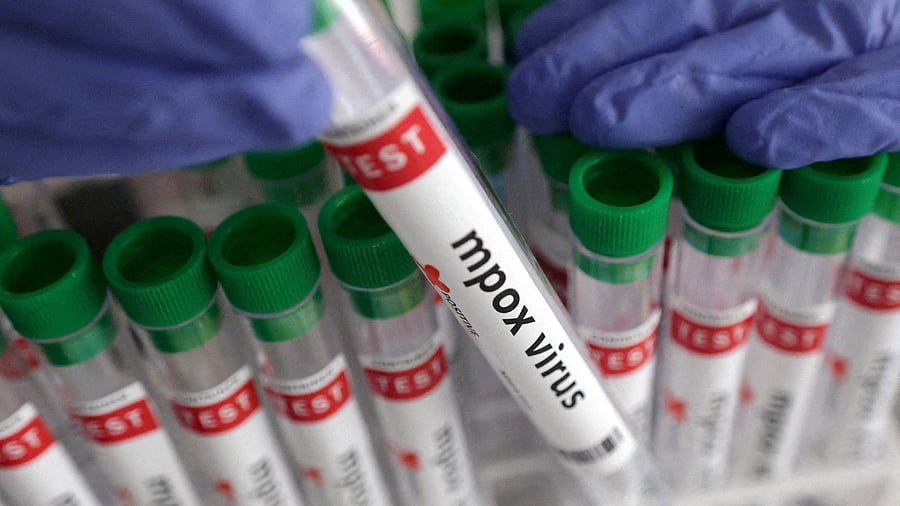
A test tube labelled "Mpox virus positive" is held in this illustration taken August 20, 2024.
Credit: Reuters Photo
By Janice Kew
Mpox is no longer a global health emergency, but more needs to be done to eradicate the sometimes deadly virus that causes unsightly, painful rashes, the World Health Organization said.
WHO Director-General Tedros Adhanom Ghebreyesus lowered the global alert level on mpox, previously known as monkeypox, more than a year after declaring the spread of the virus an extraordinary event.
“Lifting the emergency declaration does not mean the threat is over, nor that our response will stop,” he said in a briefing Friday.
Even so, the Africa Centres for Disease Control and Prevention maintains mpox’s continent-wide public health emergency status, a declaration it made in mid-August last year as a fast-spreading strain of the virus erupted. Last month, Africa’s top health body said it wants mpox vaccines added to routine immunization in countries where the virus is endemic and has been detected in dogs, rats, bats and squirrels.
A PHEIC — pronounced “fake” — applies to an event that carries a public-health risk through the international spread of a disease, and one that potentially requires a coordinated response. It can be used to encourage nations to cooperate on countermeasures.
Mpox, a cousin of the smallpox virus, has long been confined to mostly developing countries. But in 2022, it spread across Europe and the US. The frequency with which it’s been spilling over from its hosts to infect humans has also been increasing relatively unchecked.
African nations recorded almost 106,000 cases in the eight months through August, more than in the whole of last year. Still, testing rates have more than doubled in the past year, rising to 66 per cent.
Most mpox cases have been in the Democratic Republic of Congo, which on Thursday declared an outbreak of Ebola virus disease. Health services in the country have been under strain this year as the US government’s decision to cut funding for international aid and worsening conflict in the country’s east complicate efforts to contain other diseases such as mpox, cholera and measles.
“There’s a lot more work that needs to be done,” said Maria Van Kerkhove, the head of WHO’s emerging diseases and zoonoses unit in the agency’s emergency program. “The lifting of the public health emergency of international concern doesn’t mean that the problem has gone away.”